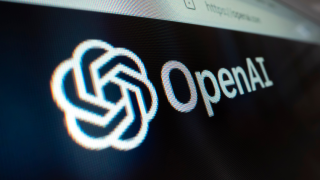In the second of a three-part research effort to examine the legality of AI-generated materials, the US Copyright Office confirmed that a work largely created by a human that features “elements of AI-generated content” would qualify for copyright protection under existing law.
“For example, a film that includes AI-generated special effects or background artwork is copyrightable, even if the AI effects and artwork separately are not,” the office said.
Subscribe today for free
The Office found that existing legal doctrines are “adequate and appropriate” to resolve questions of AI copyrightability, ruling that while assisted works can receive protection, wholly AI-generated works still don’t qualify.
Notably, just because an AI tool was used during the creation of a work doesn’t automatically grant it protection, with the Office instead saying determination will occur on a case-by-case basis.
“In many circumstances, these outputs will be copyrightable in whole or in part — where AI is used as a tool, and where a human has been able to determine the expressive elements they contain,” the report reads. “Prompts alone, however, at this stage are unlikely to satisfy those requirements.”
The report was published following the launch of an August 2023 Notice of Inquiry, which saw the office wanting to help clarify governance of AI-generated works following the rise of models like Stable Diffusion and Midjourney.
The office said it received more than 10,000 comments from stakeholders ranging from authors to academics, lawyers and libraries and even a class of middle school students, with the views used to form the recommendations in the report.
The “vast majority of commenters” agreed that existing law is correct in ruling that materials generated wholly by AI are not copyrightable.
However, greater clarity was sought for using AI as a tool during the creative process — with many arguing it was akin to a photographer using PhotoShop to help construct an overall work, especially considering such applications now feature myriad AI tools, like generative fill.
The question of AI receiving US copyright protection came to a head in 2022 after a comic book created using AI-generated images was granted protection — only after the agency was unaware that it included AI-generated art.
After a lengthy review, the Copyright Office let creator Kris Kashtanova keep some of the protections, limiting the scope to the work but not the generated images.
Referencing the comic book, the office said it had registered “hundreds of works that incorporate AI-generated material,” with the registration covering the human author’s contribution to the work.
Issues relating to AI and copyright are evolving fast as rightsholders demand legal clarity over whether their works were infringed by startups like Stability AI and OpenAI when used to train AI models.
Mass scraping of content for training materials has become an increasingly frowned upon practice since, with AI developers instead moving to secure deals with platforms for access to works. But lawsuits over prior models from the likes of Getty Images and The New York Times are still seeking determination on the issue.
RELATED STORIES
AI copyright clash: UK considers legal reforms to balance innovation and rights






